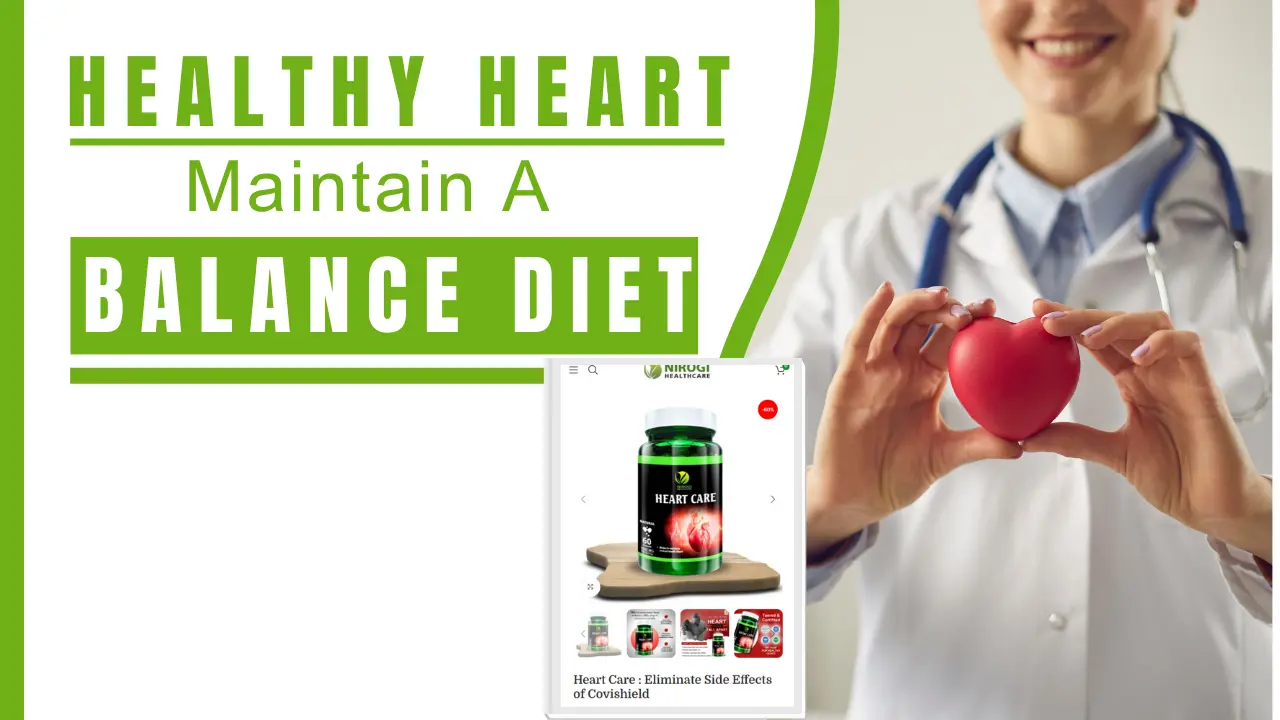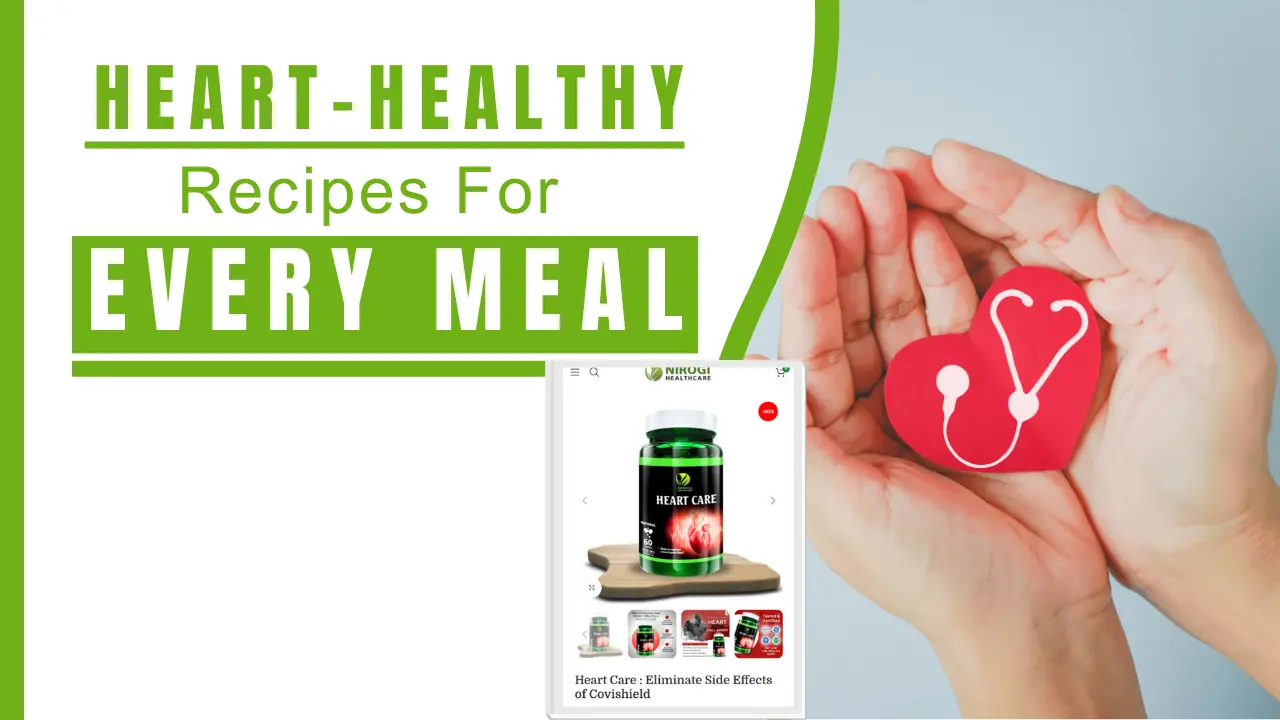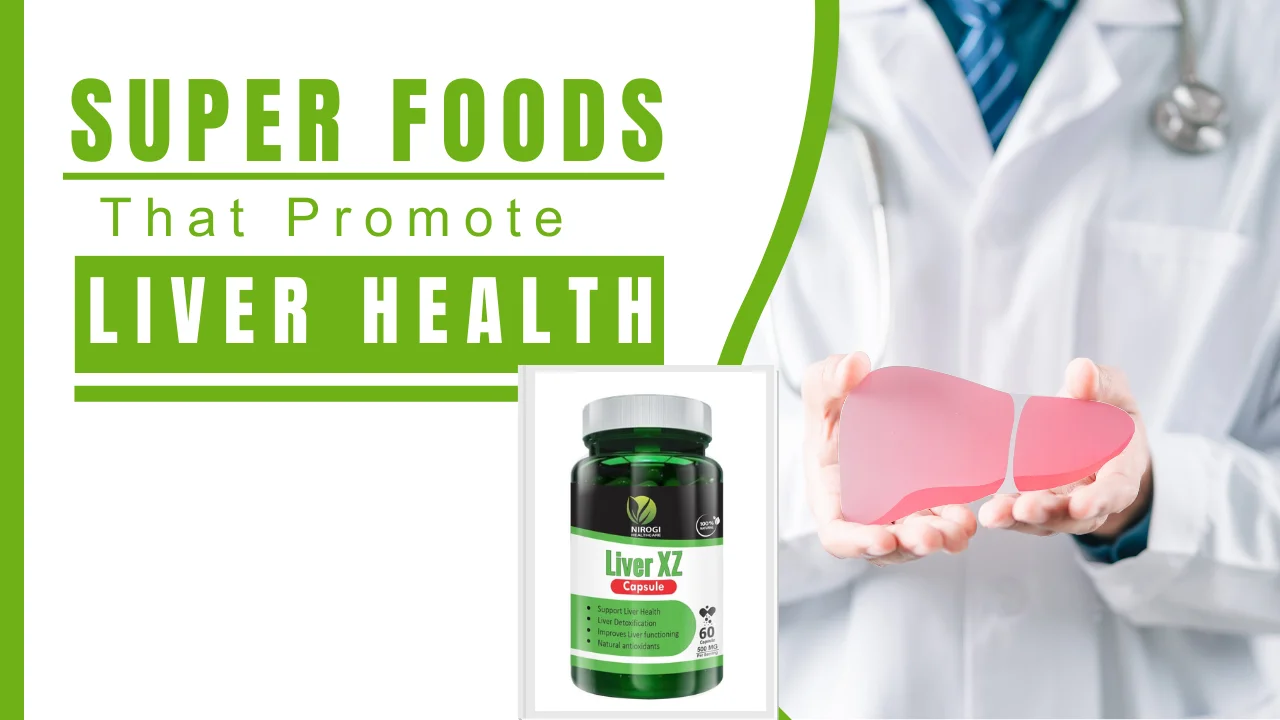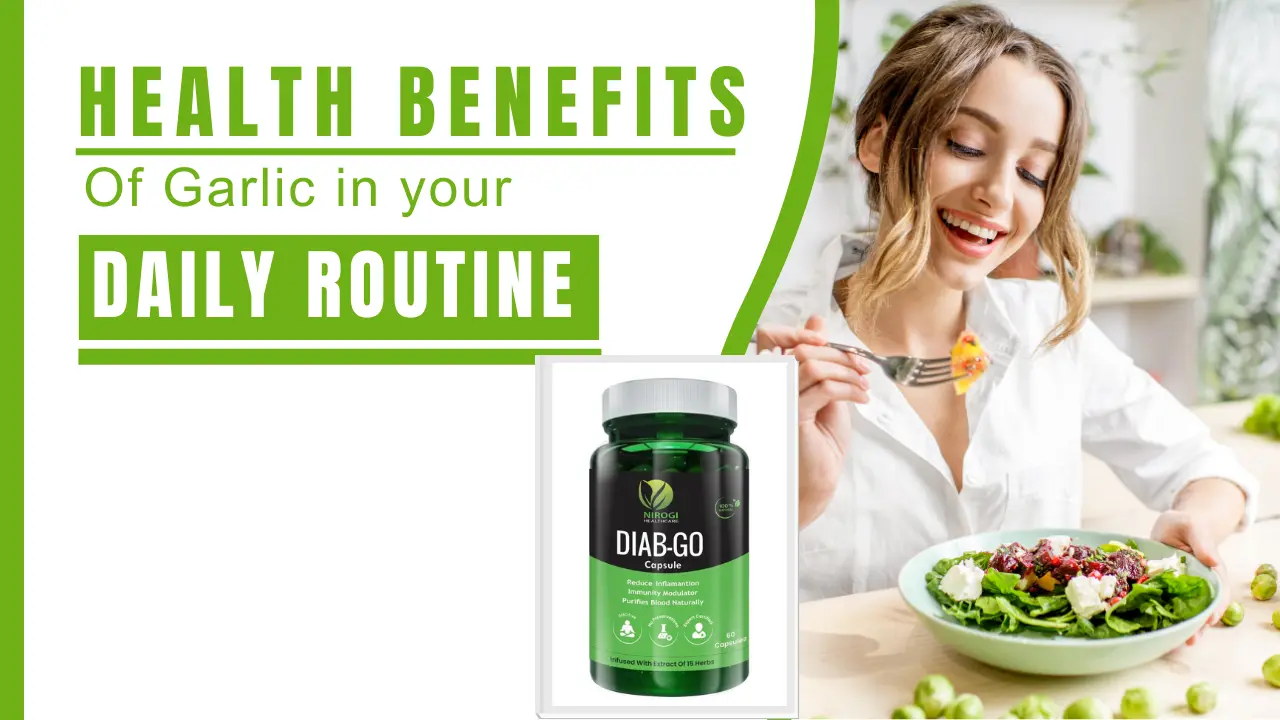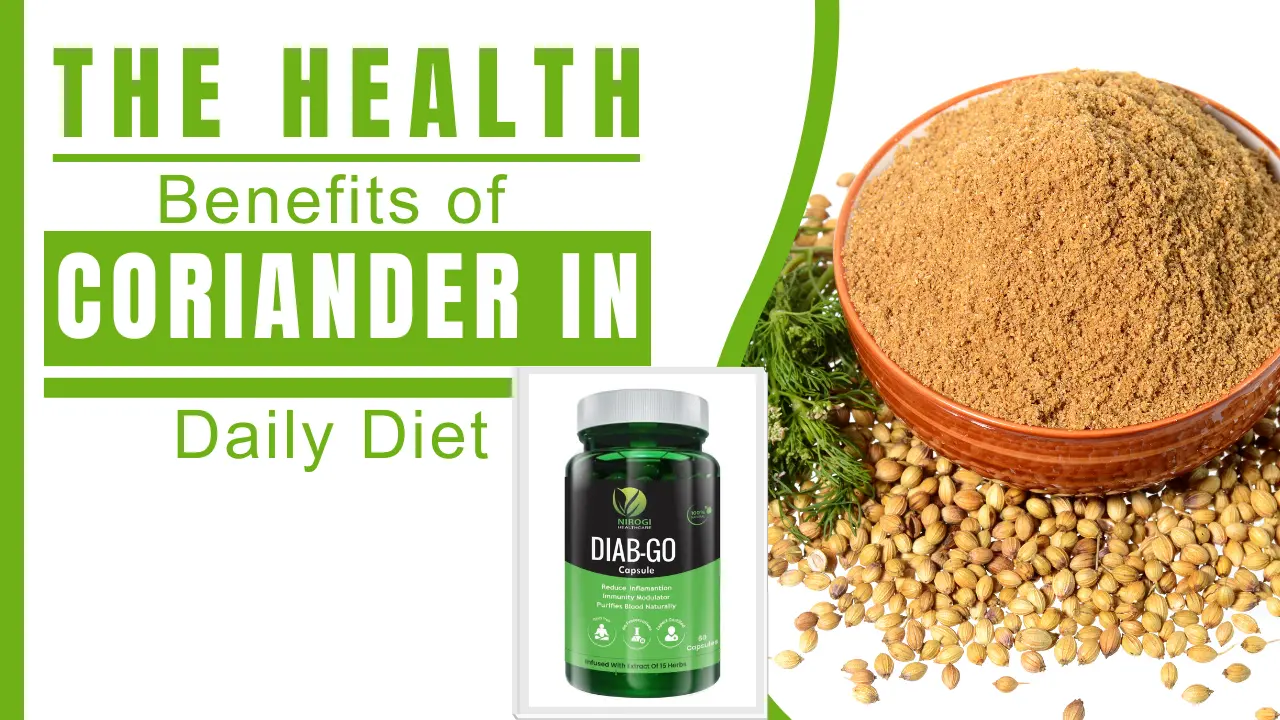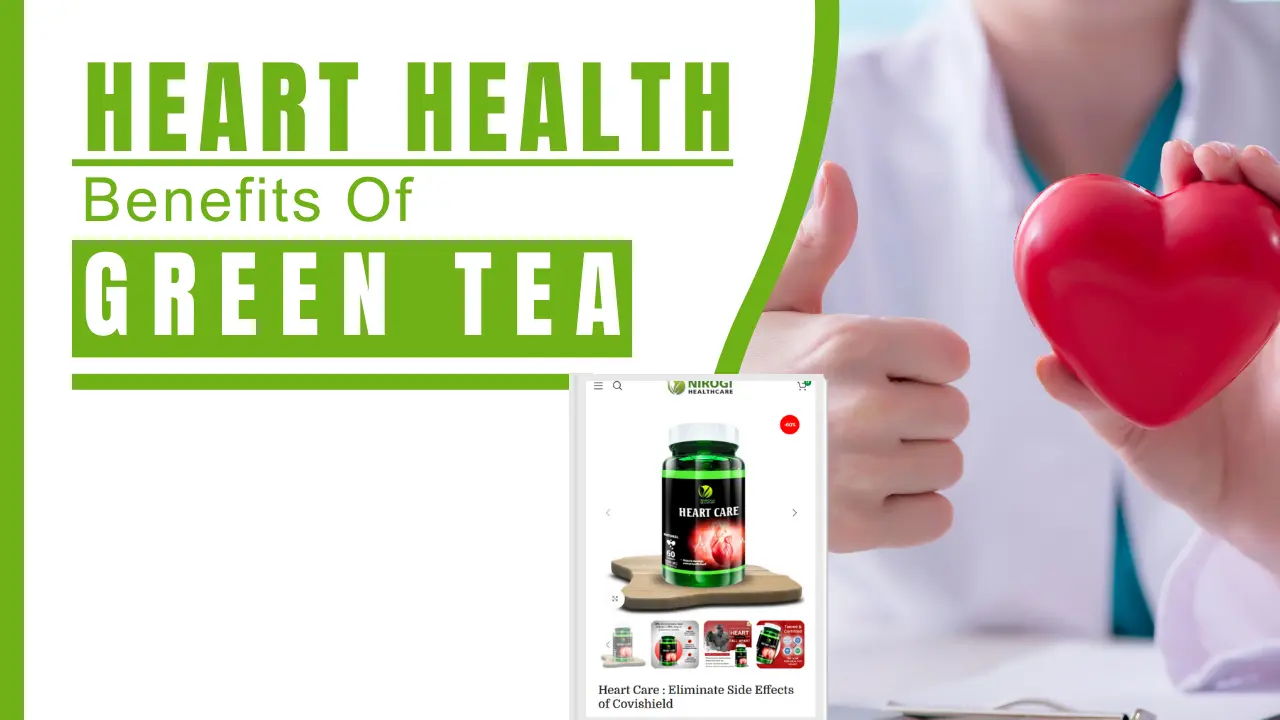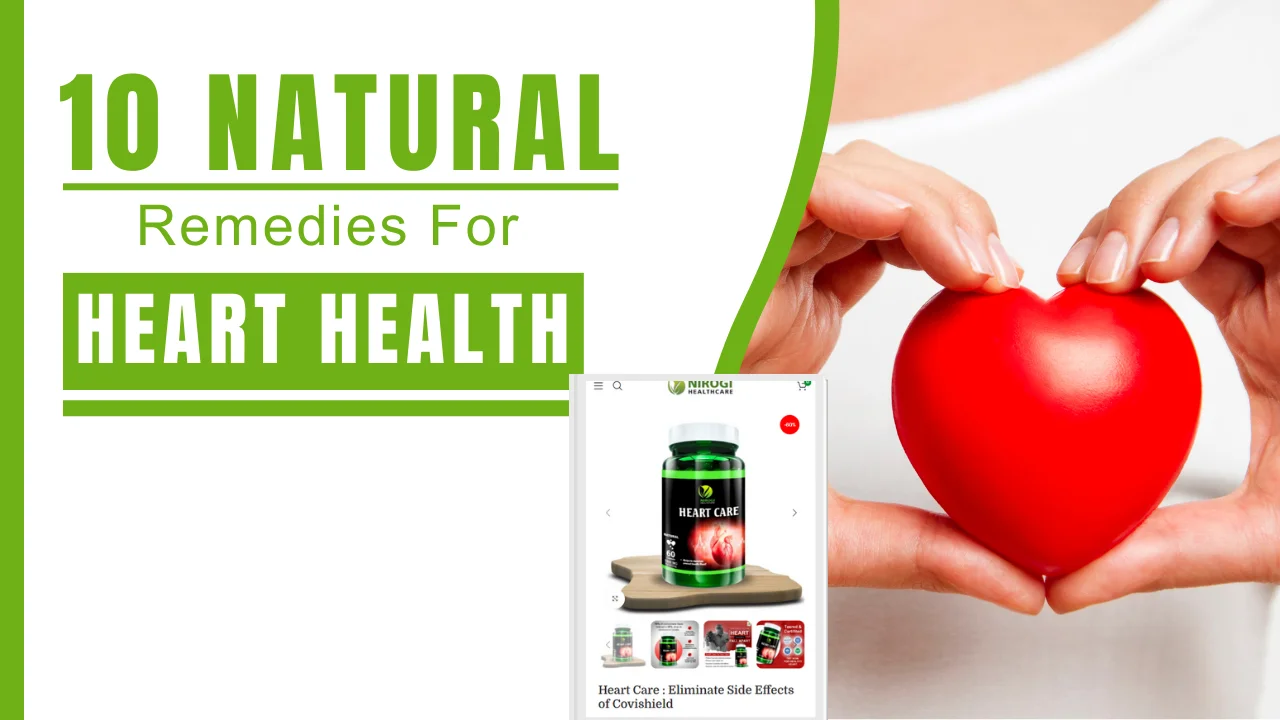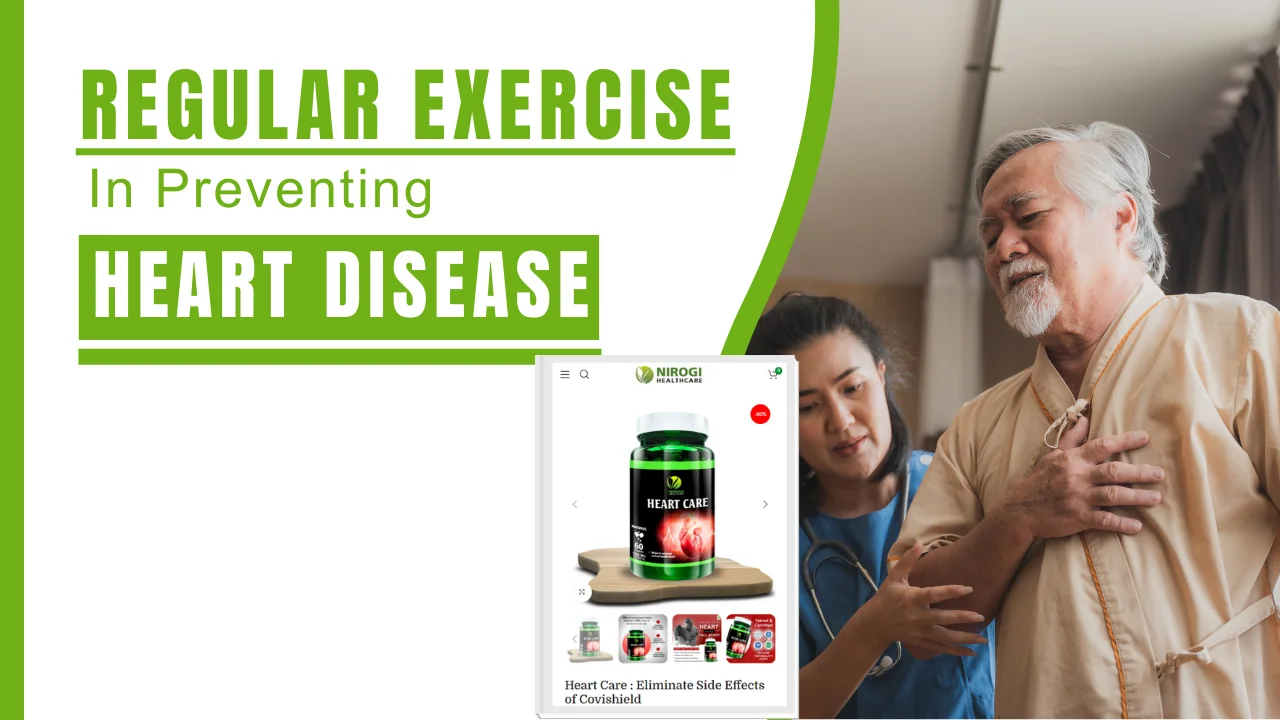Maintaining a healthy heart is essential for overall well-being, and one of the most effective ways to achieve this is through a balanced diet. Eating a variety of nutrient-rich foods can help reduce the risk of heart disease, lower cholesterol levels, and maintain healthy blood pressure. At Nirogi Healthcare, we are dedicated to promoting heart health through our Heart Care product and providing valuable nutrition tips. In this blog, we will explore how a balanced diet can support heart health and offer practical advice for incorporating heart-healthy foods into your daily meals.
Table of Contents
The Importance of a Balanced Diet for Heart Health

A balanced diet is crucial for maintaining a healthy heart. It provides the essential nutrients needed to support cardiovascular function, reduce inflammation, and prevent chronic diseases. Key components of a heart-healthy diet include:
- Fruits and Vegetables:
- Rich in vitamins, minerals, and antioxidants that protect the heart.
- High in fiber, which helps lower cholesterol and blood pressure.
- Whole Grains:
- Provide fiber, which aids in cholesterol management and digestion.
- Contain essential nutrients like B vitamins and magnesium.
- Lean Proteins:
- Include sources like fish, poultry, beans, and legumes.
- Help build and repair tissues while maintaining muscle mass.
- Healthy Fats:
- Include unsaturated fats found in olive oil, avocados, nuts, and seeds.
- Omega-3 fatty acids, found in fish, are particularly beneficial for heart health.
- Low-Fat Dairy:
- Provide calcium and vitamin D for bone health without added saturated fat.
- Options like yogurt and milk are excellent choices.
Heart-Healthy Nutrition Tips

Incorporating heart-healthy foods into your diet can be simple and delicious. Here are some practical nutrition tips to help you maintain a healthy heart:
Eat a Variety of Fruits and Vegetables
- Aim for at least five servings of fruits and vegetables daily.
- Include a rainbow of colors to ensure a range of nutrients.
- Try adding berries to your breakfast, snacking on carrot sticks, or including leafy greens in your meals.
Choose Whole Grains Over Refined Grains
- Opt for whole grains like oats, brown rice, quinoa, and whole wheat bread.
- Avoid refined grains such as white bread and sugary cereals.
- Whole grains provide more fiber and nutrients than their refined counterparts.
Include Lean Proteins in Your Diet

- Select lean cuts of meat and skinless poultry.
- Incorporate plant-based proteins like beans, lentils, and tofu.
- Include fish, especially fatty fish like salmon and mackerel, at least twice a week for their omega-3 fatty acids.
Use Healthy Fats Wisely
- Replace saturated and trans fats with unsaturated fats.
- Use olive oil or avocado oil for cooking and dressings.
- Snack on a handful of nuts or seeds, but watch portion sizes to avoid excess calories.
Limit Added Sugars and Salt
- Reduce your intake of sugary beverages, candies, and desserts.
- Choose fresh or minimally processed foods to lower sodium intake.
- Flavor foods with herbs, spices, and lemon juice instead of salt.
How Heart Care from Nirogi Healthcare Supports Heart Health

Nirogi Healthcare’s Heart Care product is specially formulated to support cardiovascular health. It contains a blend of natural ingredients known for their heart-protective properties. Here’s how Heart Care can complement your balanced diet:
- Reduces Cholesterol Levels:
- Heart Care helps lower LDL (bad) cholesterol and increase HDL (good) cholesterol.
- This balance is crucial for reducing the risk of heart disease.
- Improves Blood Circulation:
- The ingredients in Heart Care promote better blood flow and prevent arterial blockages.
- Enhanced circulation supports overall heart function.
- Supports Heart Muscle Function:
- Heart Care strengthens the heart muscles, improving their efficiency.
- It helps maintain a healthy heartbeat and prevents arrhythmias.
- Provides Antioxidant Protection:
- The antioxidants in Heart Care protect the heart from oxidative stress.
- This reduces inflammation and promotes long-term heart health.
Practical Meal Ideas for Heart Health

Incorporating heart-healthy foods into your daily meals can be easy and enjoyable. Here are some meal ideas to get you started:
Breakfast
- Oatmeal with Berries and Nuts:
- Cook oats with low-fat milk or water.
- Top with fresh berries, a handful of nuts, and a drizzle of honey.
- Spinach and Tomato Omelet:
- Whisk eggs and pour into a hot pan.
- Add chopped spinach and diced tomatoes before folding the omelet.
Lunch
- Quinoa Salad with Chickpeas and Veggies:
- Mix cooked quinoa with chickpeas, diced cucumbers, bell peppers, and cherry tomatoes.
- Dress with olive oil, lemon juice, salt, and pepper.
- Grilled Chicken Wrap:
- Fill a whole-grain wrap with grilled chicken, mixed greens, shredded carrots, and hummus.
Dinner
- Baked Salmon with Asparagus:
- Season salmon fillets with olive oil, lemon juice, garlic, and herbs.
- Bake alongside asparagus spears until cooked through.
- Lentil and Vegetable Stir-Fry:
- Sauté mixed vegetables with cooked lentils in olive oil and soy sauce.
- Serve over brown rice or quinoa.
Snacks
- Apple Slices with Almond Butter:
- Slice an apple and dip in almond butter for a satisfying snack.
- Greek Yogurt with Honey and Walnuts:
- Top a bowl of Greek yogurt with a drizzle of honey and a sprinkle of walnuts.
Our Shop Collection
-
Product on sale
 Heart Care : Eliminate Side Effects of CovishieldOriginal price was: ₹4,999.00.₹1,320.00Current price is: ₹1,320.00.
Heart Care : Eliminate Side Effects of CovishieldOriginal price was: ₹4,999.00.₹1,320.00Current price is: ₹1,320.00. -
Product on sale
 Women Care : Complete Care for Women’s Health₹2,565.00 – ₹7,695.00
Women Care : Complete Care for Women’s Health₹2,565.00 – ₹7,695.00 -
Product on sale
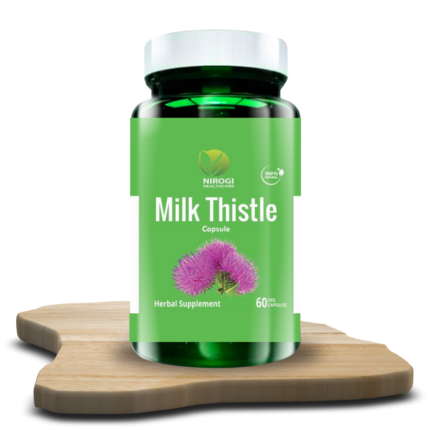 Milk Thistle : Long-Term Liver Protection₹1,399.00 – ₹3,199.00
Milk Thistle : Long-Term Liver Protection₹1,399.00 – ₹3,199.00 -
Product on sale
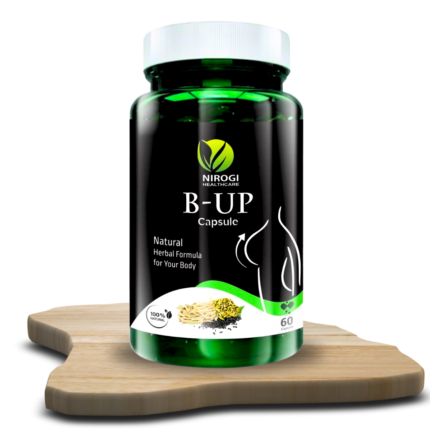 B-UP Capsule : Breast Enhancement Ayurvedic Solution₹1,999.00 – ₹4,499.00
B-UP Capsule : Breast Enhancement Ayurvedic Solution₹1,999.00 – ₹4,499.00 -
Product on sale
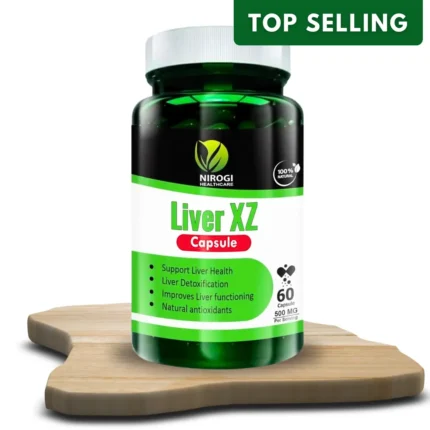 Liver XZ: Revive Your Liver Ayurvedically₹2,133.00 – ₹7,290.00
Liver XZ: Revive Your Liver Ayurvedically₹2,133.00 – ₹7,290.00 -
Product on sale
 Diab-GO : Ayurvedic Solution for Diabetes Control₹2,655.00 – ₹7,965.00
Diab-GO : Ayurvedic Solution for Diabetes Control₹2,655.00 – ₹7,965.00
FAQs
Q1: What foods should I include in a heart-healthy diet?
Include a variety of fruits, vegetables, whole grains, lean proteins, and healthy fats. These foods provide essential nutrients and help reduce the risk of heart disease.
Q2: How does Heart Care support cardiovascular health?
Heart Care contains natural ingredients that help reduce cholesterol levels, improve blood circulation, support heart muscle function, and provide antioxidant protection.
Q3: What are some easy heart-healthy meal ideas?
Try oatmeal with berries for breakfast, a quinoa salad with chickpeas for lunch, baked salmon with asparagus for dinner, and apple slices with almond butter for snacks.
Q4: How can I reduce my intake of added sugars and salt?
Choose fresh or minimally processed foods, limit sugary beverages and desserts, and use herbs, spices, and lemon juice to flavor your meals instead of salt.

